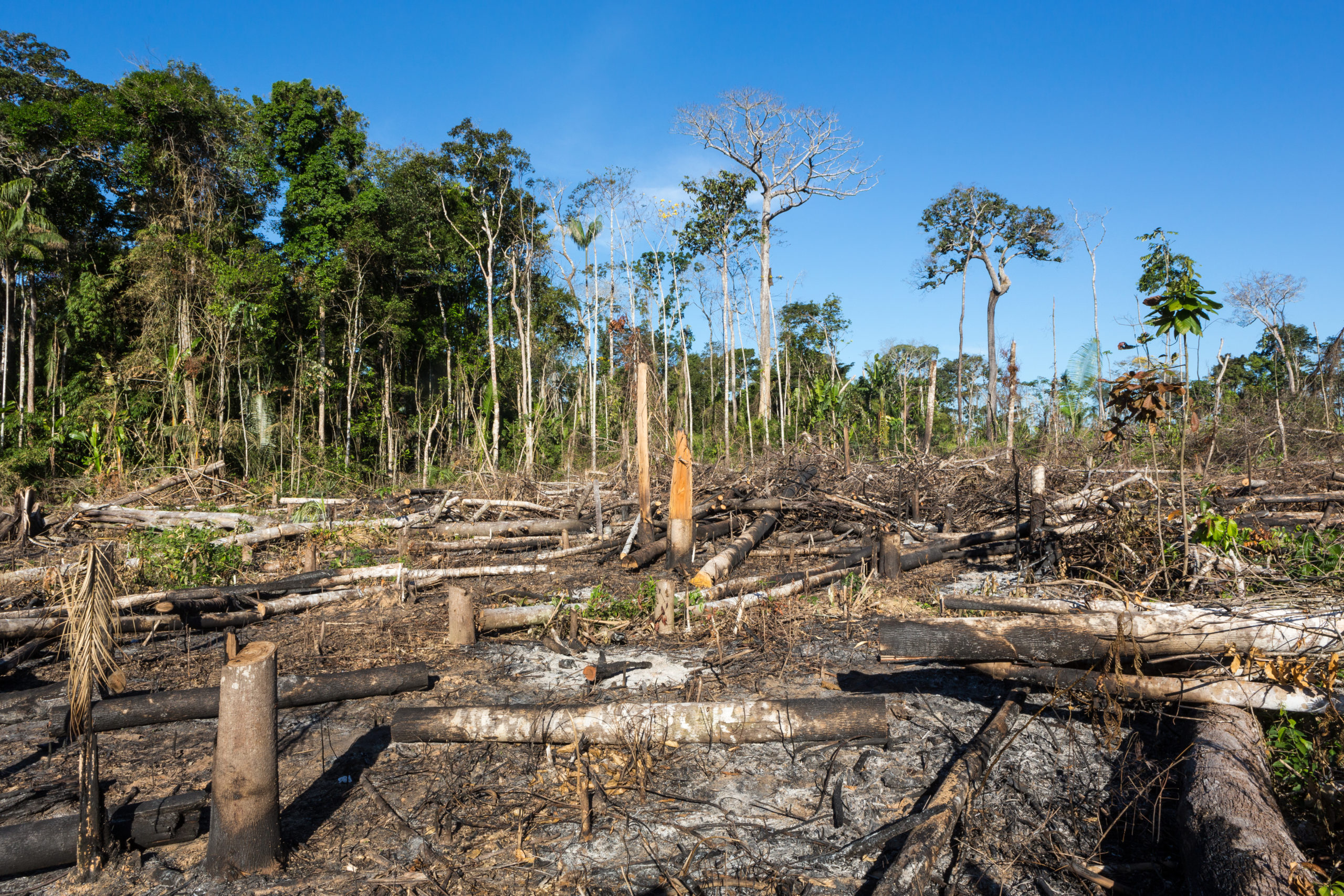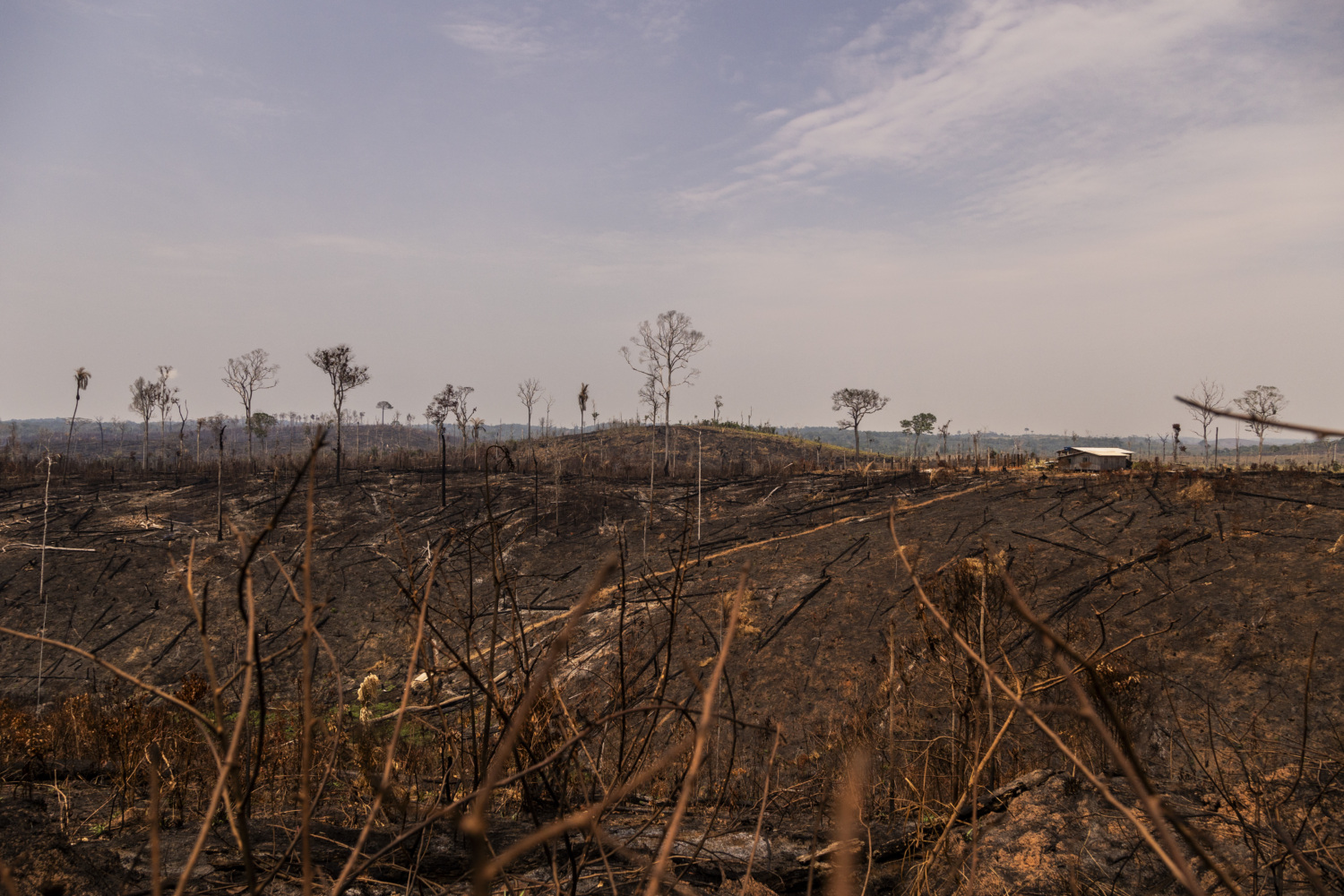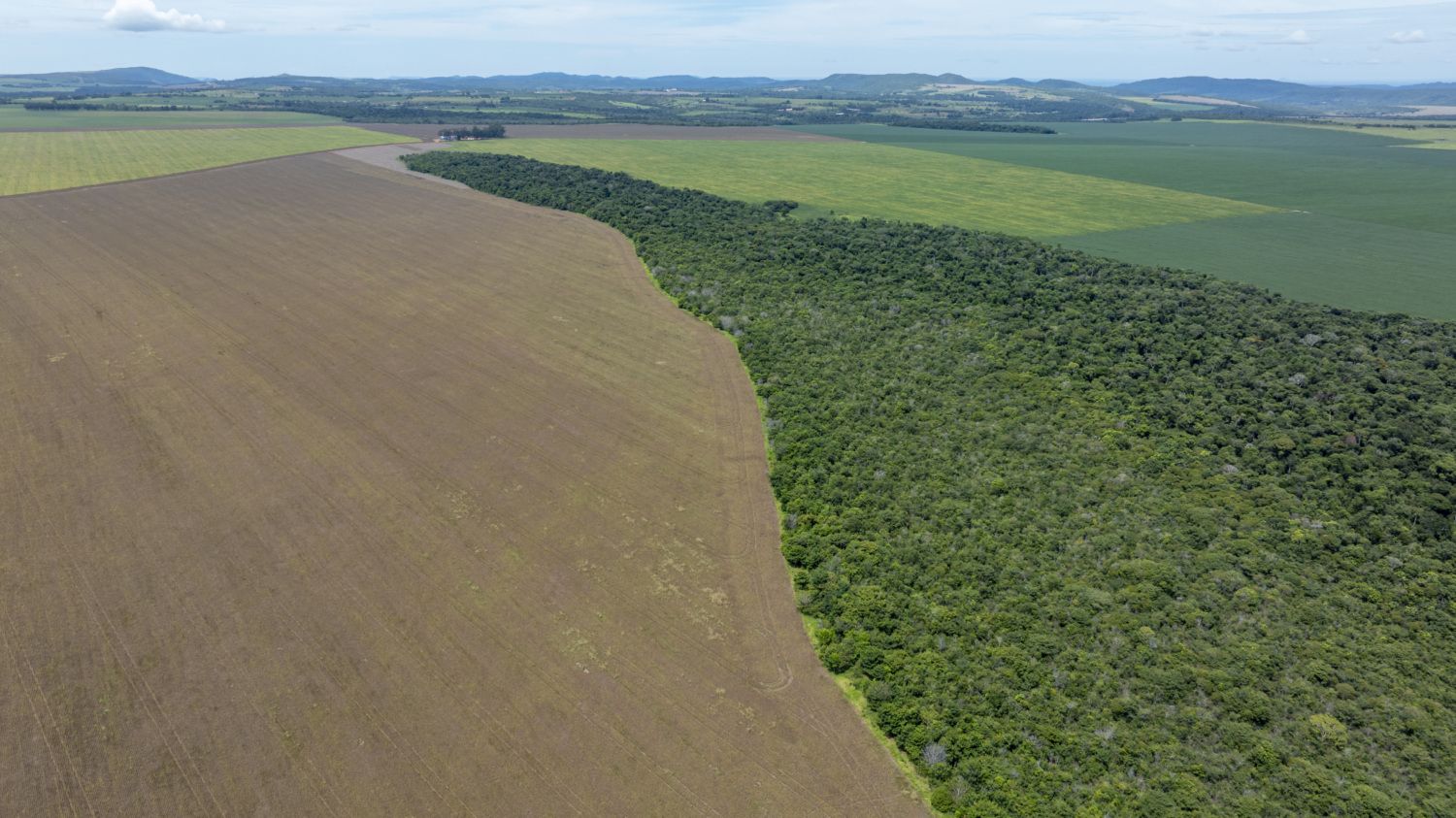
Amazon indigenous communities and international NGOs sue supermarket giant Casino/Pão de Açúcar/Éxito over deforestation and human rights violations

Amazon indigenous communities and international NGOs sue supermarket giant Casino/Pão de Açúcar/Éxito over deforestation and human rights violations
Indigenous groups to seek compensation for damages in first case brought against retail chain under groundbreaking French law to prevent social and environmental violations in supply chains
March 3, 2020: Indigenous peoples from the Brazilian and Colombian Amazon and non-governmental organizations from France and the US today filed a lawsuit in the Saint-Etienne court against global retail giant Groupe Casino over selling beef products linked to deforestation and land grabbing.
This is the first time a supermarket chain is taken to court over deforestation and human rights violations under the French due diligence law adopted in March 2017 (“loi sur le devoir de vigilance” in French). Indigenous groups claim compensation for damages done to their customary lands and the impact on their livelihoods.
Environmental destruction and human rights violations
The lawsuit alleges systemic violations of human rights and environmental laws in Groupe Casino’s supply chains in Brazil and Colombia over a long period of time. According to evidence compiled and analysed by the Center for Climate Crime Analysis (CCCA) for this case, Groupe Casino regularly bought beef from three slaughterhouses owned by JBS, a giant meatpacker. The three slaughterhouses sourced cattle from 592 suppliers responsible for at least 50,000 hectares of deforestation between 2008 and 2020 (1). The deforested area is five times the size of Paris.
Evidence submitted in this lawsuit also shows violations of indigenous rights. In one of the documented cases, customary land owned and managed by the Uru Eu Wau Wau community in the State of Rondônia, Brazil was invaded and put into production by cattle farms supplying beef to Casino’s Pão de Açúcar.
Groupe Casino’s responsibility
Despite numerous media reports linking Groupe Casino’s products to deforestation and land grabbing, the company has failed to overhaul its monitoring and enforcement policies to ensure there’s no environmental or human rights violations in its entire supply chain. The company has dared to write to the plaintiffs that “due to the low number of reports mentioning cattle as a driver of deforestation in Colombia” Casino doesn’t consider it relevant to include the country in the scope of their due diligence plan. Yet, Colombia has one of the highest rates of deforestation in the world, with cattle being the main cause (2).
In spite of the ever-growing body of evidence linking the world’s biggest meat company, JBS, to deforestation and even slave labour (3), Casino Group still buys from JBS. Furthermore, Groupe Casino has failed to commit to only sell zero-deforestation nor zero-conversion meat in their Pão de Açúcar, Casino or Grupo Éxito stores.
Groupe Casino is the largest supermarket chain in Brazil and Colombia through its brands Pão de Açúcar and Grupo Éxito respectively. Casino’s South American operations account for nearly half (47%) of the group’s global revenues.
France’s Duty of Vigilance law requires France-based companies with over 5,000 employees to take adequate and effective measures to prevent serious human rights and environmental violations in their entire supply chains. Should they fail to do so, they may be held liable and ordered to pay damages.
Amazon’s tipping point
Cattle ranching is the main driver of deforestation in South America, in particular in Brazil. According to Brazil’s space agency (INPE), deforestation of the Amazon rainforest has surged to a 12-year high. The Amazon is in danger of reaching a tipping point of switching from a canopy rainforest to open grassland.
Last December, the Brazilian government removed any measure to tackle deforestation in the national climate action plan (known as an NDC) under the Paris Agreement, although forest loss continues to be the main source of greenhouse gas emissions in the country.
Comments from the plaintiffs
The plaintiffs in this lawsuit include the Coordinator of the Indigenous Organizations of the Brazilian Amazon (COIAB), the National Organization of Indigenous Peoples of the Colombian Amazon (OPIAC), the Federation of Indigenous Peoples of Pará (FEPIPA), the Federation of Indigenous Peoples and Organizations of Mato Grosso (FEPOIMT), Pastoral Commission of the Earth (CPT), Canopée, Envol Vert, France Nature Environnement, Mighty Earth, Notre Affaire à Tous and Sherpa.
The breadth and diversity of the coalition is testament to the global footprint and the variety of impacts caused by industrial beef production as well as the need for a collective defense.
Luis Eloy Terena of the Terena people of Brazil, legal advisor at COIAB said: “It is important for COIAB to be part of this lawsuit because the Brazilian Amazon falls within purview for action in defense of the constitutional rights and guarantees of the indigenous peoples who live here. We are responsible as well for defending isolated or initially contacted peoples. As we make clear in the complaint, the demand for beef by Casino and Pão de Açúcar brings deforestation and land grabbing and violence, and the murder of indigenous leaders when they choose to resist. With this lawsuit, we seek to hold the company accountable for the consequences of these impacts and to bring some relief to the reality confronted by our Indigenous Peoples on their Lands.”
Fany Kuiru Castro of the Uitoto people of Colombia, director at OPIAC said: “Cattle ranching, monocultures and other extractive industries are putting our lives at risk and exterminating indigenous peoples. Therefore this legal action over neglecting the demands in the meat supply chain, which come from cattle ranching, is fully supported by our organization.”
Boris Patentreger, co-founder of Envol Vert, said: “In 2021, in a world where we can technically trace and monitor everything, an international group called Casino, which has seen tremendous growth in South America in the last years, fails to eliminate deforestation from all its supply chain. That’s unacceptable!”
Lucie Chatelain, lawyer at Sherpa, said: “The number of deforestation and human rights abuses cases that have been documented in Casino’s supply chain in Brazil shows that its alleged vigilance measures are neither adequate, nor effective. Sherpa successfully advocated for years for the adoption of the French Duty of Vigilance Law and this case is emblematic of the violations that it precisely aims to avoid.”
Sebastien Mabile, lawyer of Seattle Avocats, said: “This lawsuit will demonstrate the breadth and depth of France’s Duty of Vigilance law, which applies to the entire supply chain, both in France and abroad. The law imposes on multinational corporations actions to prevent breaches proportional to the risks identified, as well as strict social and judiciary controls. The seriousness of the violations documented in this case leads us to initiate the first liability action on the basis of this text.”
Nico Muzi, Europe director of Mighty Earth, said: “JBS is not only the largest meat company in the world but it’s also one of the worst forest destroyers in Brazil. For this reason Groupe Casino must drop JBS altogether. But we also call on other leading European supermarkets such as Carrefour, Tesco, Albert Heijn and Lidl to break their links to deforestation and drop JBS, the slaughter of the Amazon.”
Cecilia Rinaudo, general coordinator of Notre Affaire à Tous, said: “This case is a tragic example of the interdependence between the environment and human rights, both protected by the Duty of diligence law. Casino only identifies slave labour as an associated risk in their supply chain without taking any measure to eradicate it. Moreover, the firm failed to identify land grabbing as a threat to human rights despite many reports on this well-known issue. Casino cannot stay passive and must adopt concrete measures to prevent these major risks.”
Adeline Favrel, forest campaign coordinator of France Nature Environnement, said: “France adopted the Duty of Vigilance law in 2017 and the National Strategy Against Imported Deforestation in 2018. These public policies must be translated into concrete actions by companies like Casino to finally stop deforestation.”
Klervi Le Guenic, campaigner of Canopée said: “Casino is not the only retailer responsible, they all have the power to change things. Carrefour is one of the largest retailers in Brazil and is also particularly exposed to deforestation risks. They have to ditch the meat companies linked to Amazon destruction.”
Notes to the Editor:
- Last week, investigative journalism group Reporter Brasil published a new report showing that the three largest supermarket chains in Brazil Casino’s Pão de Açúcar, Carrefour and Grupo Big have sold beef from mega-farms that illegally cleared thousands of hectares of forests.
- Report on deforestation fronts, 2021
- Historically, commercial activity in rural areas in Brazil have been responsible for slavery and forced labour. The sector with the highest number of cases of slavery is cattle farming. According to the Comissao Pastoral da Terra and Brazil’s federal government data, almost half (47%) of the slave labour cases identified between 2003 and 2020 are linked to the cattle sector. The latest Reporter Brasil’s investigation traced most slave labour cases to JBS slaughterhouses, key supplier to Casino’s Pão de Açúcar.
Coalition members:
OPIAC (Organización Nacional de los Pueblos Indígenas de la Amazonia Colombiana) is the Colombian Indigenous organization of the Indigenous Peoples of the Colombian Amazon before national and international institutions. Its main objective is to ensure that all the collective and individual rights of its members are respected and recognized by all actors located in the Colombian Amazon region.
COIAB (Coordination of Indigenous Organizations of the Brazilian Amazon) founded on April 19, 1989, is the largest regional indigenous organization in Brazil, which emerged on the initiative of leaders of indigenous organizations. The mission of COIAB is to defend the rights of indigenous peoples to land, health, education, culture and sustainability, taking into account the diversity of peoples and seeking their autonomy through political articulation and the strengthening of indigenous organizations.
FEPIPA (Federation of Indigenous Peoples of Pará) founded in April 2016, is an indigenous organization, created to promote the social, political, economic and cultural well-being and human rights of indigenous peoples. It aims to defend and discuss the collective interests of the indigenous peoples and communities of the State of Pará, promoting their social, cultural, economic and political organization, strengthening their autonomy.
FEPOIMT (Federation of Indigenous Peoples of Mato Grosso) created in June 2016 was born from the need to unite for political action and articulation, aimed at the social, cultural, economic organisation and the sustainable and political development of Indigenous Peoples and organisations of Mato Grosso. Its main challenges are the guarantee and regularization of land, environmental management, protection of the territory and the fight for Indigenous rights.
CPT (Pastoral Commission of the Earth) is part of the Pastoral Commissions of the Conference of Bishops of Brazil. It was created to defend the peasants and ensure a supportive and fraternal presence among the rural populations. Present in many dioceses, it is committed to the crucial issue of sharing the land and against the destruction of the environment.
Envol Vert acts for the preservation of forests and biodiversity in Latin America (mainly Colombia and Peru) and in France. Since 2011, we have been developing concrete and effective field projects that include the reforestation of degraded areas, the development of agroforestry and alternatives to illegal logging such as ecotourism, the development of nature reserves, conservation, and reintroduction of species. Envol Vert also conducts communication campaigns and awareness-raising actions to encourage businesses and citizens to change their production and consumption patterns.
Mighty Earth is a global environmental campaign organization that works to protect forests, conserve oceans, and address climate change. We work to drive large-scale action towards environmentally responsible agriculture that protects native ecosystems, wildlife, and water, and respects local community rights. Our campaigns and our team have played a leading role in persuading the world’s largest food and agriculture companies to adopt policies to eliminate deforestation and human rights abuse from their supply chains, and driven adoption of multi-billion dollar shifts to clean energy.
Notre Affaire à Tous is an association that works to protect life, the natural commons and the climate through the use of law. Coming from the movement for the recognition of the crime of ecocide in international law in order to punish the most serious crimes against the environment and at the origin of the “Affair of the Century,” the members of Notre Affaire à Tous position themselves as “advocates for the planet”, seeking to establish through case law, legal advocacy, and citizen mobilization an effective and objective responsibility of humans towards the environment.
Seattle Avocats is a law firm specializing in issues of corporate liability for environmental and human rights violations. Mr. Sébastien Mabile and Mr. François de Cambiaire represent NGOs and communities within the framework of the first actions brought on the basis of the law on the duty of vigilance of companies, in particular against Total and against the transport group XPO Logistics, and are interested in particular to the debates underway at international and European level on the social and criminal responsibility of multinationals. With regard to particularly serious damage to the environment having equally serious consequences on the rights of Indigenous populations, the Seattle Avocats law firm provides its support and expertise to the international coalition of associations which call on the Casino group to stand by. comply with the law on the duty of vigilance.
Sherpa is an association created in 2001 whose mission is to fight new forms of impunity linked to globalization and to defend communities that are victims of economic crimes. Sherpa works to put the law at the service of a fairer globalization. The action of the association is based on four interdependent tools: research, litigation, advocacy and capacity building. These actions are carried out by a team of jurists and lawyers. Sherpa’s activities have helped compensate communities affected by economic crimes, and have contributed to historic court rulings against multinational companies and groundbreaking legislative policies.
Canopée Forets Vivantes is a new organization founded in 2018 which surges from the critical need to build a citizen counter-power to better protect forests in France and in the world. We are a bell-ringer association that reports the threats on forests. We not only report, what we want is acting at the root of the issues by producing a quality counter-expertise and bringing it to the public space. Canopée is a member of Friends of the Earth and of the group SOS Forêt.
France Nature Environment is the French federation of Voluntary Organizations for nature preservation and environmental protection. We bring together 3 500 French NGOs, across 53 organizations in French mainland and overseas territories. Since 1968, we have been fighting for ecological transition by leading citizen mobilization. We raise public awareness through environmental education. We are constantly striving to improve environmental law. We regularly contribute to French and European public policies for better environmental regulations. Through whistleblowing, we make sure they actually are enforced.


